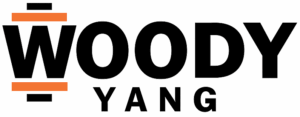The rhythm of the music industry has always been dictated by innovation, from vinyl to streaming. Yet, the current technological revolution, powered by Artificial Intelligence, feels fundamentally different. We stand at a precipice, where the next few years will determine whether AI becomes a harmonious collaborator, amplifying human artistry, or a disruptive force that drowns out the very voices that define the industry. The clock is indeed ticking, and the decisions made now regarding regulation, ethical adoption, and technological integration will resonate for decades. This isn’t just about new tools; it’s about reshaping the entire ecosystem, from creation and distribution to consumption and compensation. The potential for seismic shifts is immense, driven by AI models growing ever more sophisticated and a rapidly evolving political and economic landscape.
On the creative front, AI is rapidly transitioning from a futuristic concept to a practical instrument in the artist’s toolkit. We’re seeing a growing openness among musicians to incorporating AI into their creative workflows, whether for generating initial ideas, refining melodies, or optimizing production processes. Tools that once required expensive studios and specialized skills are becoming more accessible, democratizing music creation to an unprecedented degree. This surge isn’t merely theoretical; market forecasts predict significant growth, with the global generative AI music market expected to reach $3.1 billion by 2028, a substantial leap from recent figures. This presents a tangible economic opportunity, not only for AI development companies but also for artists and labels willing to explore new revenue streams, such as licensing existing works for AI training data or earning royalties from AI-assisted tracks.
Beyond creation, AI is fundamentally altering how we, as listeners, experience music. The rise of streaming platforms already transformed distribution, but AI is now optimizing consumption through hyper-personalization. AI algorithms are the unseen curators of our digital music libraries, analyzing listening history, preferences, and even emotional cues to build playlists and recommend new artists and genres we might genuinely love. Services like Spotify’s Discover Weekly or Apple Music’s Personalized Radio are prime examples, acting as intelligent guides through the vast ocean of available music. This benefits listeners by expanding their musical horizons and provides artists with powerful new avenues to reach engaged audiences organically, cutting through the noise of sheer volume.
However, the integration of AI is not without its significant challenges and ethical quandaries. The potential for AI to generate music at scale, mimicking existing styles or even voices, raises serious concerns about artist compensation, intellectual property, and the risk of market saturation leading to “listener fatigue.” Imagine an endless stream of tracks “in the style of” your favorite artist – initially intriguing, perhaps, but potentially diluting the value and impact of original work. Furthermore, the rise of AI agents capable of autonomously creating, producing, and even marketing music poses a direct threat to the livelihoods of human musicians and industry professionals. There are discussions, though still speculative for large-scale adoption, of major labels considering AI-generated performers who demand no royalties or creative freedom. Navigating these ethical waters, ensuring fair compensation, and protecting creative rights are paramount to preventing a scenario where human artists are left without viable income streams.
Ultimately, AI in the music industry is a double-edged sword. It offers unparalleled opportunities for creative exploration, market growth, and personalized discovery. Yet, it simultaneously presents existential challenges regarding artist viability, ethical usage, and the very definition of musical authenticity. While AI can produce technically proficient music, it currently struggles to replicate the intangible magic of human collaboration – the spontaneous jam session, the shared understanding on stage, the raw emotion poured into a live performance. The industry’s future hinges on its ability to embrace AI responsibly, establishing robust ethical frameworks, regulatory guidelines, and a collaborative spirit between technologists, artists, and policymakers. The goal must be to foster a future where AI serves as a powerful tool to enhance, rather than diminish, the vibrant, human-centered world of music.













